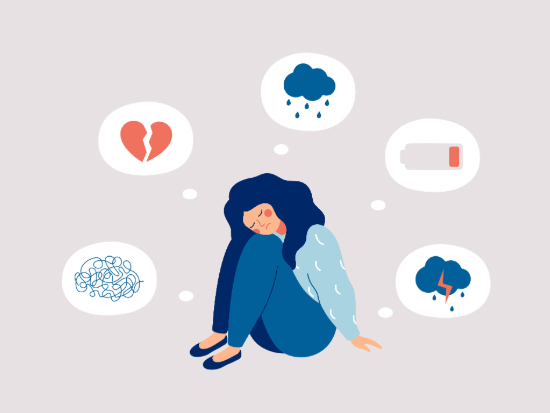 Treatment-resistant depression (TRD) is defined as a condition where individuals with depression do not adequately respond to conventional antidepressant treatments, and their symptoms persist or recur despite multiple therapeutic interventions, including medication changes, psychotherapy, and other modalities.
Treatment-resistant depression (TRD) is defined as a condition where individuals with depression do not adequately respond to conventional antidepressant treatments, and their symptoms persist or recur despite multiple therapeutic interventions, including medication changes, psychotherapy, and other modalities.
The UAB Department of Psychiatry and Behavioral Neurobiology is unwavering in its commitment to understanding and conquering this complex condition. Here, we offer a glimpse into the department's efforts to combat TRD, shedding light on its comprehensive approach to assessment and treatment, remarkable success stories, and the latest developments in the field, with a particular focus on the revolutionary use of esketamine.
The challenges of Treatment-Resistant Depression
TRD is a multifaceted challenge, presenting limited treatment options and casting a profound shadow over the lives of those affected. The UAB Department of Psychiatry and Behavioral Neurobiology aims to alleviate suffering, enhance quality of life, and reduce the risk of suicide among TRD patients. Achieving these objectives necessitates a holistic, personalized, and collaborative approach to care.
The department's approach to TRD begins with a thorough assessment, taking into account various factors:
Patient history: Understanding a patient’s history is vital. Medical professionals consider age, age at first major depressive episode, family history, genetics, trauma history, comorbid psychiatric diagnoses, substance use history, lifestyle, and other medical conditions.
Support system: The presence of a robust support system plays a significant role in recovery.
Treatment history: UAB reviews past and ongoing treatments, whether successful or not, including various psychotherapy options.
Patient goals: Aligning treatment plans with a patient's goals and motivations is crucial.
Risk assessment: Prioritizing the assessment of suicidal and self-injurious behaviors is paramount.
Effective treatment hinges on open and collaborative communication between patients and providers. Patients are encouraged to share their goals, fears, and feedback on their progress. Ensuring that patients feel heard and involved in their treatment decisions enhances adherence and overall satisfaction with the treatment plan.
Diverse treatment options
The UAB Depression and Suicide Center offers a range of treatment options, including pharmacotherapy, psychotherapy, and access to advanced treatments:
Electroconvulsive Therapy (ECT): ECT involves electrical stimulation of the brain under general anesthesia, intentionally triggering a brief seizure. ECT has shown rapid efficacy in treating TRD, as well as depression during pregnancy, psychotic depression, and severe suicidality.
Vagus Nerve Stimulation (VNS): VNS involves a generator implanted in the chest cavity that sends electrical impulses to the vagus nerve. Although not widely used due to limited coverage, studies indicate that VNS may benefit patients with the most treatment-resistant forms of depression.
Clinical Trials Research Program: The department actively engages in clinical trials to test novel drugs and devices, aiming to modify the course of the illness for those unresponsive to traditional treatments.
Intranasal Esketamine: Esketamine, a component of ketamine, is the first drug approved for depression that works on the NMDA receptor. It has shown efficacy in both short and long-term studies, even receiving FDA indication for treating suicidality.
The UAB Department of Psychiatry and Behavioral Neurobiology remains steadfast in its dedication to conquering the complex challenges of TRD. The department's holistic approach, personalized treatment plans, and ongoing research initiatives underline its unwavering commitment to improving the lives of TRD patients.